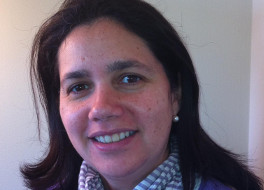

Bio
Loana has been a member of the Board of Directors of the Association since 2010, where she has served as Secretary of the Association and the Co-Chair of the Education and Accreditation Committee. She is the vice president of LATN, Inc., a language service provider (LSP), currently ranked among the Top 40 largest LSPs in North America. Her responsibilities range from recruitment of linguists, organizing activities for the professional development of interpreters, and implementing policies consistent with the ATA and NCIHC codes of ethics and standards of practice, to performing industry analyses and forecasts and mapping strategic growth and representing both organizations at industry conferences and events. In addition to the above responsibilities, Loana is a Georgia certified court interpreter, with a strong background in the areas of healthcare and community interpreting. Loana is also a certified trainer of The Community Interpreters. As an interpreter trainer, she is dedicated to the development of skill-building tools for interpreters. Loana is also involved as a volunteer in The Voice of Love Project, a pro bono initiative that has organized a three-day interpreter training program to serve survivors of torture, trauma and sexual violence. She contributes to the development of industry standards as a member of ASTM, Committee F43 on Language Services and Products, and participates in Sub-Committees F43.01 on Language Interpreting, F43.03 on Language Translation, F43.05 on Language Services Companies. Loana is also an active member of ATA, NAJIT, NCIHC, IMIA and MING. Prior to becoming an interpreter, Loana worked as a consultant for The Boston Consulting Group, where she participated in domestic and international projects. She holds a bachelor’s degree in economics and an MBA from UVA’s Darden School of Business.
Abstract
The landscape of industry standards for the language services industry is changing. From multiple local standards we are moving to include more detailed standards with international reach. FIT and ATA, as well as other industry stakeholders, have been involved in the process of creation of detailed international standards for the language services industry through ISO and ASTM. More than 21 standards have been created, some of them covering technical specification related to the technology we use, and some directly applicable to the work of Interpreters, Translators and Language Service Providers (LSP’s). These standards provide I&T with a platform to disseminate information to end users and will guide each of us on how to improve our processes for consistent quality results.
